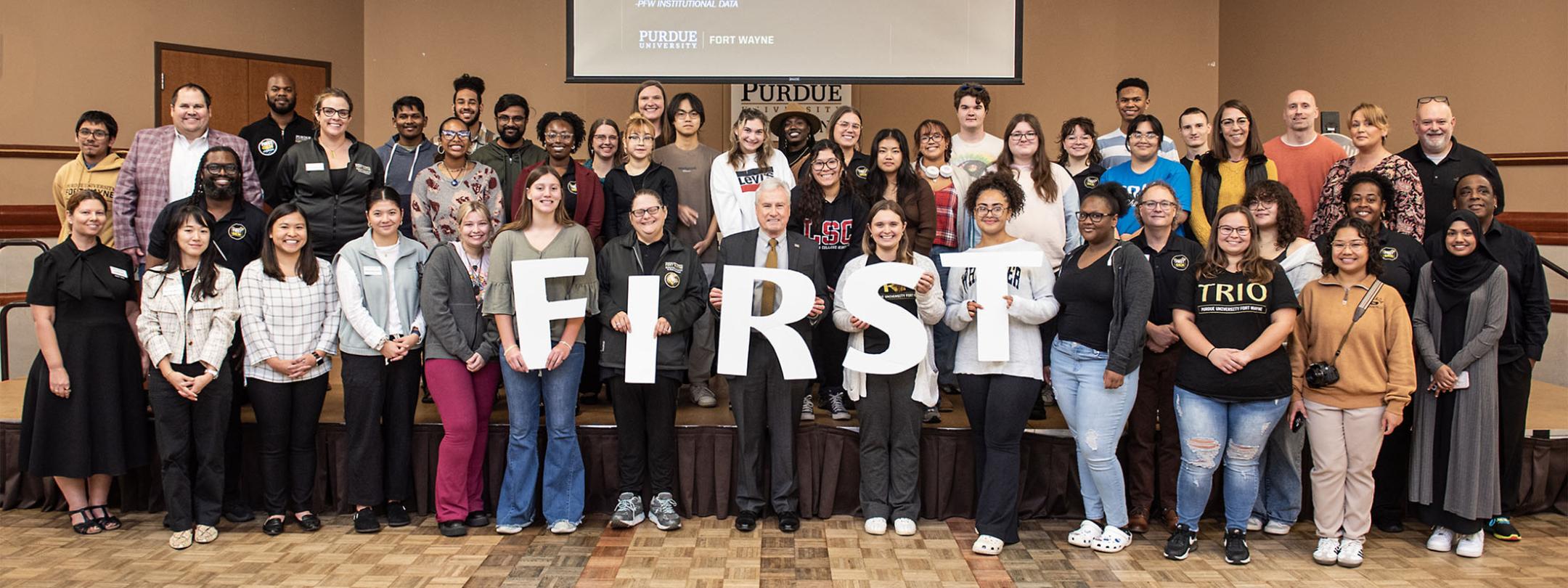
TRIO provides support, guidance for first-generation students
By Blake Sebring
November 26, 2024
Sitting in the middle of a five-student panel during TRIO’s First-Generation Celebration on Nov. 6, Aurea Alconera decided to show how much she’s evolved in two years at Purdue University Fort Wayne. The question was, “What advice would you give other first-generation students?”
“Imposter syndrome is very real,” said Alconera, a senior majoring in psychology, who leaned forward into the microphone to deliver her answer. “If you are going through it, or are still experiencing it, that is valid. However, that is not who you are. That is not your identity. Even if you feel that you can’t get past this, just say yes to a lot of things because that will present a lot of opportunities for you and your future. Don’t let imposter syndrome be your identity because it will never be who you are.”
Located in Kettler Hall, Room G25, TRIO Student Support Services helps first-generation students find the support they need through mentoring, workshops, counseling, tutoring, special functions, and employment opportunities. There is no fee to join, and nearly 200 students are part of the program this semester.
The annual First-Generation Celebration in the Classic Ballroom at Walb Student Union is a way to spread information about TRIO by asking program participants to share their experiences. The five students on this year’s panel described their trepidation as freshmen to now becoming examples for their families and other first-generation students.
Kayti Austin, a junior majoring in sociology, described helping two siblings apply for college and fill out their FAFSA forms for financial aid. She talked about the adjustment to college jargon, which is rarely heard anywhere else. Jaythen Haywood, a junior majoring in political science, told how his parents asked him to talk to his little brother about attending college.
“It’s really been foundational for my family,” Haywood said. “At first, I wasn’t even planning on going to college, and my parents were the ones who really pushed me into it. I wanted to learn a trade, and my dad about had a heart attack when I told him that. They are really excited and eager to hear everything I’m learning about.”
Roshidah Noordin, B.S. ’24, talked about the burden of her parents' expectations when she started her college career, but also how her accomplishments have become transformative for them because neither parent had the opportunity to receive an education. She recalled seeing her father’s pride as she went through commencement in May.
“I saw how proud he was of me,” Noordin said. “I still remember how my dad said he didn’t know how to read or write, but me [graduating] is giving him a higher status in life. Just doing that for my parents is very special for my family.”
Haywood said one of his biggest challenges was learning to balance studying and life while working full time.
“It came down to understanding what I can and can’t have and developing that discipline,” Haywood said.
Dymond Barbre, a senior majoring in psychology, said the support from TRIO team members was refreshing, especially since most had similar experiences when they were students.
“Don’t be afraid to get out there,” Barbre said. “It’s so scary, but meet new people, go to the events, talk to your professors, and get to know them. Get to know your peers. Network, network, network. Those people are going to help you pave the path for your future to get where you want to go. Do what scares you.”




